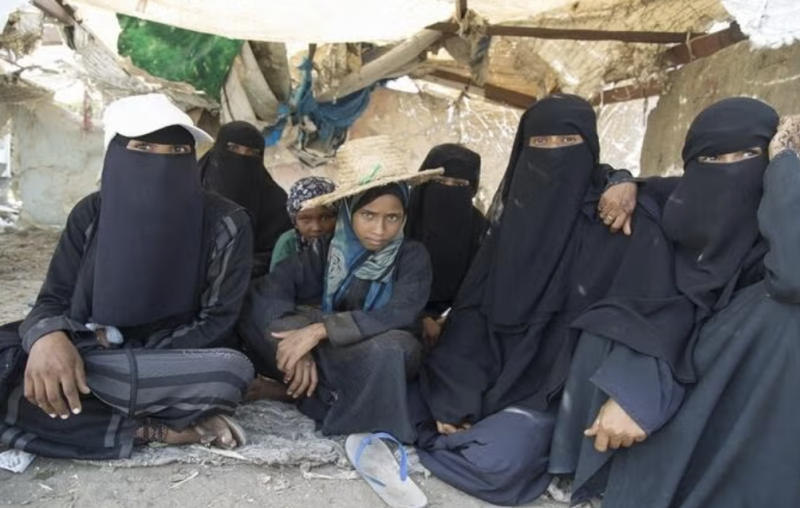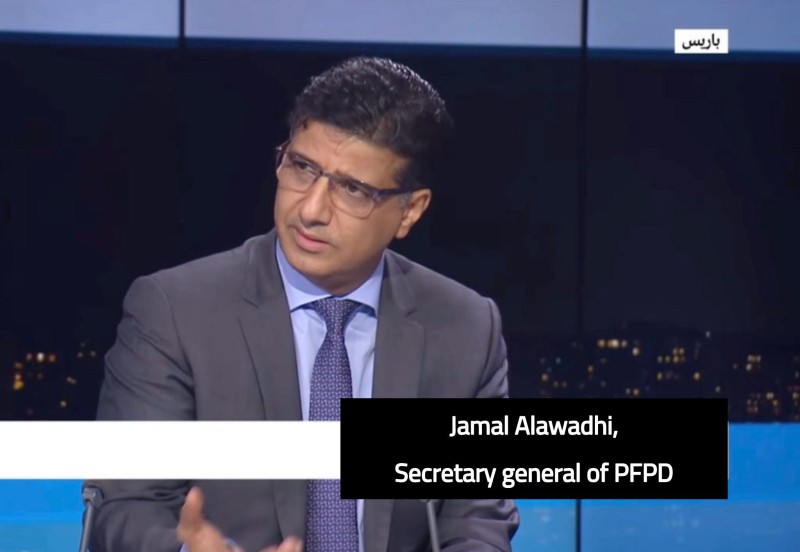How 'blood money' could save an Indian nurse convicted of murder in Yemen


On the last day of 2024, a curious news story began circulating in the Indian media.
A nurse from Kerala, a region known for its luscious beaches and tranquil backwaters, had been convicted of murder in Yemen and was set to be executed within a month.
The stories reported Yemen's president, Rashad al-Alimi, had "sanctioned" Nimisha Priya's death sentence.
Her execution was all but assured, with no legal avenues of appeal left, they reported.
Only one option remained.
If Ms Priya's family could raise and pay so-called "blood money" to the family of the man she was convicted of murdering, she might be able to secure a pardon, and her life would be spared.
Searching for the original, official communication from the Yemeni president approving her execution proved fruitless — and would eventually involve a surprise twist in this strange case.
Still, the Indian media had taken hold of the story, and journalists started asking the Ministry of External Affairs — India's foreign affairs department — what it was doing to help.
It issued a short statement: "We are aware of the sentencing of Ms Nimisha Priya in Yemen. We understand that the family of Ms Priya is exploring relevant options. The government is extending all possible help in the matter."
The vague and limited details about Ms Priya's situation only fuelled the frenzy.
Ms Priya insists it was a terrible accident involving a large dose of ketamine to free herself from an increasingly terrifying situation. Meanwhile, Yemeni police say she was responsible for a truly ghoulish crime.
As the mystery and intrigue deepen, millions of Indians want to know: What hope is there, truly, that Nimisha Priya might be spared?
Drugs and mutilation
Ms Priya moved from Kerala to Yemen about 15 years ago to work as a nurse.
She then married an Indian national, and had a baby.
She and her husband decided they wanted to open a medical clinic, but due to Yemeni laws limiting foreigners from operating businesses, they recruited a Yemeni man, Talal Abdo Mahdi, to be her business partner.
After the trio travelled back to Kerala for her daughter's baptism, Ms Priya and Mr Mahdi returned to Yemen.
Her husband and daughter intended to follow, but as Yemen's civil war erupted, the Indian government banned them from travelling there.
This is when things started going downhill, according to Indian Supreme Court lawyer Subhash Chandran KR, who is advising the Save Nimisha Priya International Action Council, a group of lawyers and human rights activists working to provide her and her family with legal and financial assistance.
Mr Chandran last spoke to Ms Priya about six months ago.
"The victim started abusing her financially, and all her financial earnings were taken away," Mr Chandran told the ABC.
He said Ms Priya alleged Mr Mahdi tortured her — though Mr Chandran would not share the details — and that on numerous occasions, both complained to the police and both were arrested.
Mr Mahdi then confiscated Ms Priya's passport.
In 2017, she tried to sedate him with ketamine to try to get it back.
Mr Chandran said due to Mr Mahdi's drug history, the dosage didn't work; Ms Priya upped the dosage, causing Mr Mahdi to overdose and die.
She was arrested and charged with murder and mutilating his body.
Yemeni police say Mr Mahdi's body was cut into more than 100 pieces and put into a water tank.
This, according to Mr Chandran, sealed Ms Priya's fate.
"This was, in fact, according to Sharia law, more than murdering somebody. Mutilating the body is a serious offence," he explained.
But he said Ms Priya maintains that, at least, she did not do this.
"When I spoke to her personally, she said unfortunately [the overdose] happened. The unfortunate death happened by her hand, but she didn't … cut his body into pieces."
The state of Mr Mahdi's body after his death remains unknown.
An opaque legal system
Yemen's judiciary uses various systems of law, including Sharia law, which is a strict religious code based on Islamic scriptures.
Certain crimes in Yemen attract the death penalty, something that can cause real diplomatic disputes when a foreigner there is sentenced to death.
The legal timeline from Ms Priya's arrest to now is not entirely clear, even to Mr Chandran.
His work has been focused in India — namely, applying to the Delhi High Court for the travel ban to be waived so Ms Priya's mother could travel to Yemen to see her, and appealing to the Ministry of External Affairs for diplomatic assistance.
His understanding is that, when Ms Priya first faced trial in 2017, there was no-one to defend her.
She was convicted of murder and sentenced to death.
He said the court did ultimately appoint her a local lawyer, but "we do not know who that was".
At some point, he said, she was forced to sign confessional documents in Arabic without a translator.
"She did not know what she was signing," Mr Chandran said.
"Nobody was there to assist her."

By/April Longley Alley* Among the broader regional repercussions of the Gaza ceasefire in October, one of the most signifi…

Al-Hodeidah – Local sources in Yemen’s Al-Hodeidah province have disclosed that Houthi militias are resorting to new methods of exploit…

By Jamal Al-Awadhi For years, Yemen has been treated by the international community as a marginal conflict an unfortunate…